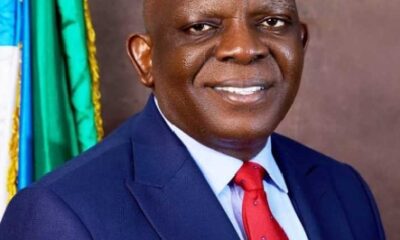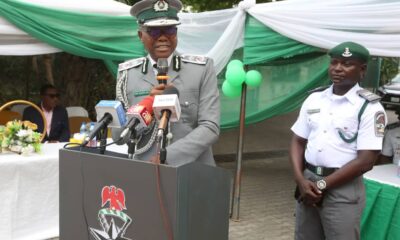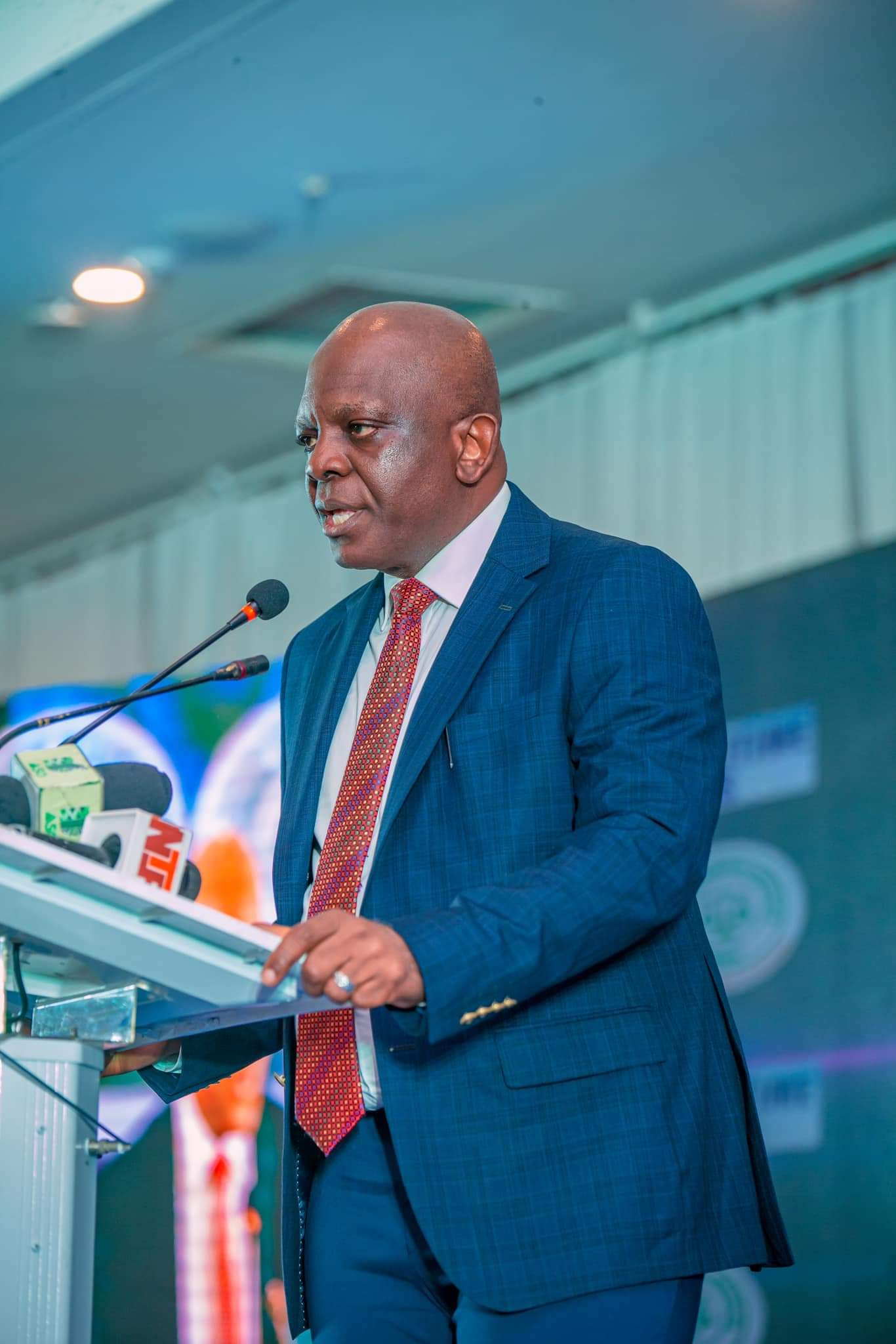Maritime
‘FG Implementing Enhanced Infrastructure, Transportation To Grow Economy’ – Akutah
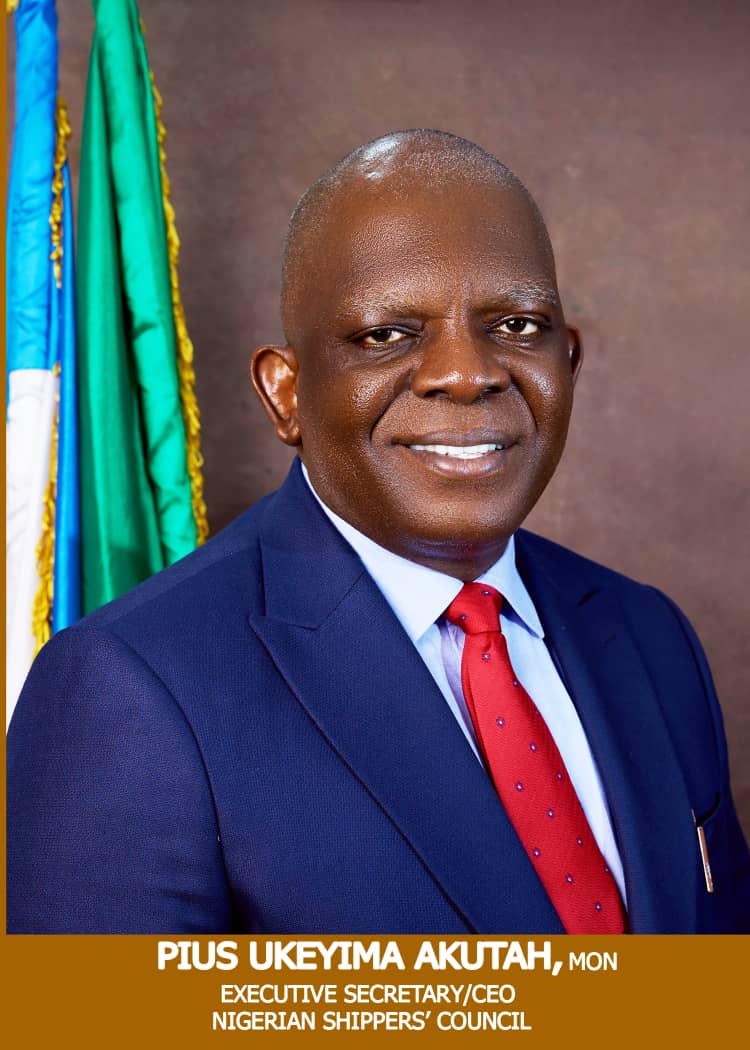
BY EGUONO ODJEGBA
Executive Secretary of the Nigeria Shippers’ Council (NSC), Barr. Pius Akutah has affirmed the resolve of the federal government to rejuvenate and enable the growth of the national economy through enhanced infrastructure and transportation.
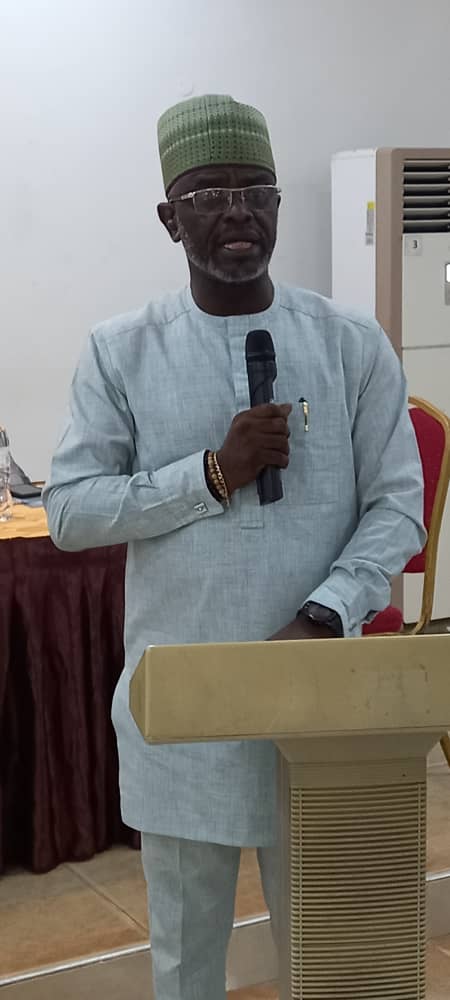
Representative of the ES, Chief Rotimi Anifowose, making his presentation
The Council helmsman who disclosed above weekend while speaking at a one day seminar organized by the League of Maritime Editors and Publishers (LOMEP) at the Lagos Airport Hotel Ikeja, described President Bola Tinubu’s passion in achieving a progressive, efficient and functional economy as a most encouraging and uncommon demonstration of leadership commitment.
This is even as he decried perceived high cost of trade within the African continent, which development he attributed to poor infrastructure, cumbersome border procedures, trade restriction, arbitrary tariff, and associated high cost of doing business.
Speaking on the theme “ Renewed Hope Agenda: The Place of Nigeria’s Maritime Industry”, Akutah said that government is committed and focused on implementing above policy thrust to revitalize the economy through clearly outline agenda; part of which is the unbundling of the former federal ministry of transportation for optimal and streamlined sectoral efficiency.
He said, “President Bola Ahmed Tinubu’s administration has laid down an 8-point agenda in order to revamp our national economy. A cardinal part of these agendas directly related to our industry is “Enhance infrastructure and transportation as enablers of growth.
“The President has unbundled the then Federal Ministry of Transportation into two ministries, that is, Ministry of Transportation and the Ministry of Marine and Blue Economy. This is for effective service delivery and expand revenue base of the country.
“Let me use this opportunity to reiterate that, we, in the Nigerian Shippers’ Council, will continue to promote and advocate for full digitalisation of port process and operations in Nigerian ports. This is in line with the Federal Government’s “Renewed Hope” and also our mandate as the nation’s port economic regulator.”
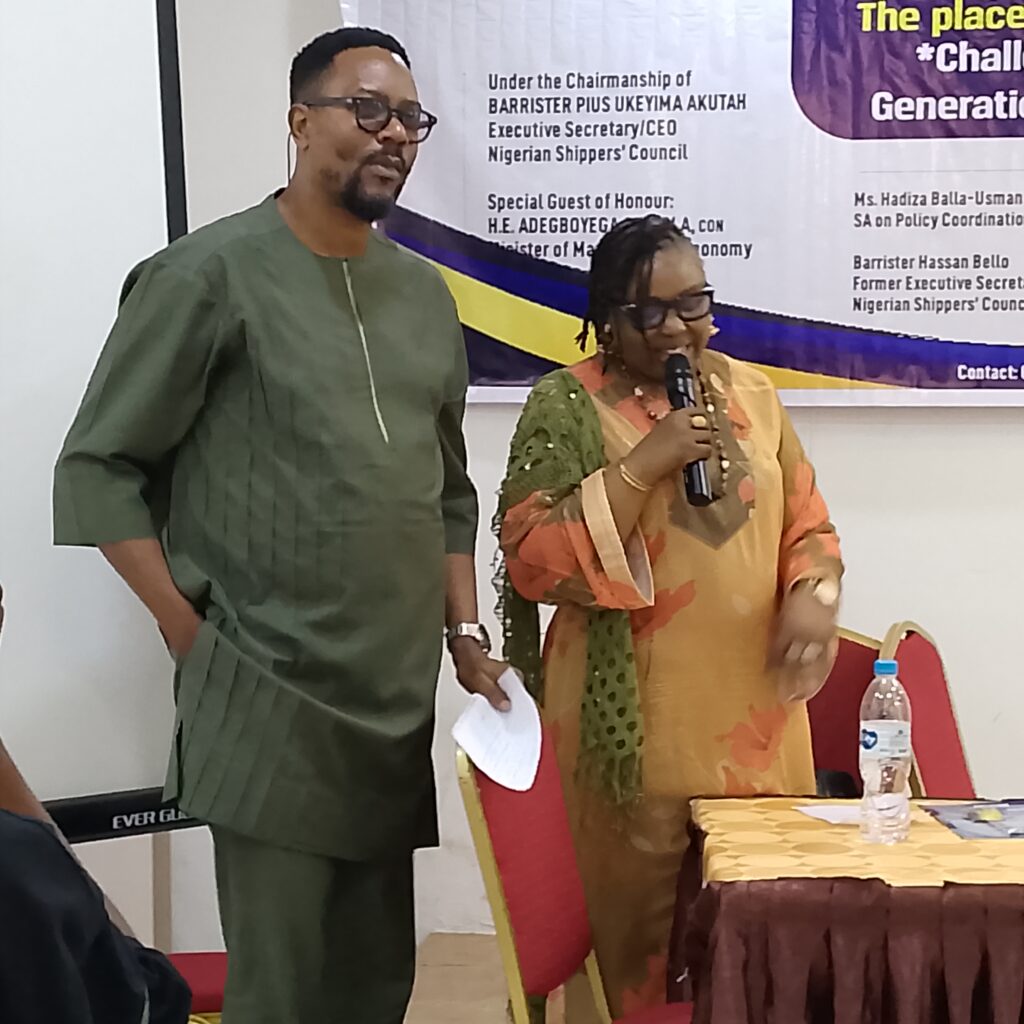
Mr. Peterand Pastor Ballah of NIMASA and NPA respectively, at the occassion.

In line with the above policy thrust, Akutah revealed that over 90% of Nigerian port processes and operations have been automated.
While appreciating LOMEP for providing an avenue to introspect and appraise some of the giant steps so far taking by government to strengthen the tools of economic development, particularly on challenges bedeviling African intra continental trade, Akutah outlined a number of interventions the Council has undertaken to collaborate with critical operators to reinforce the economy.

L-R: Chief Innocent Chukwu and Funsho Olojo, veteran maritime journalist at the function
“Trade between African countries is more expensive compared with trading with other parts of the world. This is due to several bottlenecks such as poor infrastructure, cumbersome border procedures, trade restriction, arbitrary tariff, and high cost of doing business in general.
Affirming the importance of using engagements such as the LOMEP seminar to achieving beneficial discourse that will reshape and strengthen the system, Akutah said, “It is our conviction that this event is the needed platform to discuss and recommend remedial measures to correct the above-identified trade abnormalities with a view to encouraging increase in international trade.”
The Council CEO who was also the chairman of the occasion enjoined journalists to continue to use their platforms to highlight economic issues where recommendations and remedial measures to correcting existing deficits and trade abnormalities, can be advanced.
Reeling out recent milestone achievements of the Agency, Akutah listed among other things, the establishment of Border Information Centres (BICs) at official borders across the country with four operational BICs located at Serme-Krake, Jibia-Maradi, Iliela and Mfum borders; the establishment of a complaint handling and dispute-resolution mechanisms for mitigation and out of court settlement between shipping service providers and users.
He also listed the promotion and facilitation of the establishment of Inland Dry Ports (IDPs) across the country in the bid to make shipping services available to the door steps of shippers located at the hinterlands and to assist in the evacuation of transit trade to landlocked countries.
Others include the promotion and facilitation of the establishment of Vehicle Transit Areas (VTAs) to serve as a resting place for truck drivers and other road users; adding that NSC also sets guidelines for tariff and stakeholders’ standard operating procedures, plus cost moderation.
“We are also Setting guidelines for tariff and stakeholders’ standard operating procedures, and cost moderation, and engaging the shipping companies and terminal operators on the need to establish fair and competitive tariff in order to forestall the diversion of cargoes to other neighbouring countries.
“Other interventions from the Council are sensitisation and training of stakeholders to encourage the adoption of international best practice in doing their business transactions. We are engaging with the Standard Organisation of Nigeria(SON), National Agency for Food & Drug Administration and Control( NAFDAC),and other relevant stakeholders to address the issue of rejection of Nigeria agricultural produce in other countries”, he stated.





